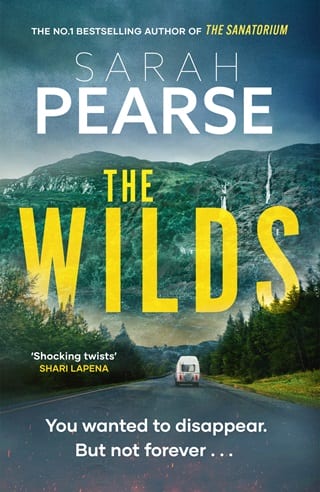Chapter 11 Kier
11
Kier
Devon, July 2018
Zeph's himself again as we walk home. He tells me that he'd like to take a fishing trip on the river, cook what we catch on the grill.
‘Did Mila show you where you can launch the kayaks from?' I give Woody's lead a tug, pulling him away from a pile of rubbish he's sniffing in the gutter.
‘Yeah, she says it's pretty nice. Get all the way down to Bantham on the right tide.'
‘What else did you talk about?'
‘Penn, mainly. Interesting, hearing about him from someone apart from you.'
I raise an eyebrow. ‘You quizzed her?'
Zeph smiles. He does this with normal, happy people. Interrogates them. Brief anthropologic investigations to work out why they're content with what he considers mundanity. Mundanity in Zeph's world describes anyone who doesn't create . All his friends, acquaintances, are artists of some description – sculptors, chefs, musicians, dancers.
‘And? '
He laughs. ‘Actually, she said the same as you. That he makes her feel safe. He's a fixer.'
She's right.
Penn's the kind of person you can call in a crisis, who'll know what to do when the car breaks down or the sink is spouting water or the airline has lost your ticket.
He remains calm. He would be the one to do CPR or the Heimlich manoeuvre, while I would be on the floor in a heap.
I know that because he tried that on my father after my mother stabbed him. Penn was the one who tried to plug his wounds, breathe air into his blood-bubbled mouth.
I did none of that. Instead, I lay down on the floor beside my mother and started screaming.
I didn't stop until long after the ambulance came. Penn said I'd only briefly pause to draw breath before starting again, and all the time my eyes were open.
Our mother killed our father when we were thirteen. Stabbed him thirty-four times from his neck all the way down to his ankles.
People don't think it will happen in a small town like ours. Knives and blood and that kind of anger.
But it did, and in some ways, it wasn't a surprise.
Mum was pushed to her limits. Verbally. Physically.
Month by month, Penn and I saw her get taken apart and attempt to put herself back together again. But each time, the pieces were put back slightly wrong, until one day, she was properly broken, didn't resemble herself at all.
Soon after that was when she did what she did and became the Monster.
That's what they called her, the tabloid press. The Monster.
A nickname that had its roots in one of their headlines. Riffing off a line like: What kind of monster would do something like this?
It stuck .
My father didn't get a nickname, but then, the narrative was never about him.
It was all about her.
I know why. It was because what my mother did was visible and imaginable. People saw the illustrations of my father's body with the thirty-four stab wounds neatly marked in black pen. The images of the bloodstained floor. Studied the old photo of my mother from one of my father's office parties, grinning at the camera, and came to their own conclusions.
What they didn't see was my mother's multiple bruises, long faded, all the years that had built to that one point, when she snapped. They didn't see the home-fixed fractures that never made it to our local GP or the four chipped teeth that she said were from falling down the stairs.
Those details were mentioned but skimmed over. People didn't want facts. They wanted a story . A narrative they could buy into, feel something about. They wanted to pile on, have a vessel in which to pour their pent-up rage about their own lives. To hate and to feel justified in hating.
No one likes an angry woman.
But I came to realise that no one likes any kind of woman.
Whoever she is, she's up for being judged.
Mum became the victim of all that misogyny, internalised and externalised.
She deserved it.
Should have controlled herself.
Were hormones to blame?
Women have a fine act to balance. To be, but not be too much.
What hurt me the most wasn't the strangers' judgements; it was those of the people close to us. They looked at my mother as if all the years before didn't matter. They forgot about their friend who used to run the annual Christmas stall, the woman who swam the bay twenty times for cancer research.
Instead, she became the headline, and they believed it.
The trouble was, the more they believed, the more I believed, too, and I started to struggle to see the other person my mother was .
I shut my eyes, already feeling my heart rate rising. What my mother did and didn't do always sets off a strange roller coaster of emotions inside me.
An up and down of love and fear and hate.
I don't understand what she did, but at the same time I absolutely get it.
How could she , and at the same time, Why did she wait so long?
I remember my friend asking me about it, a few years after it happened.
‘Do you hate her?'
I replied: I hate her, and I love her.
I hate what she did to our lives, how she exploded it into thousands of tiny pieces, and I love her more than life itself.
Zeph waves a hand in front of my face. ‘Penny for them? Isn't that what you Brits say?'
‘Nothing.' I give another tug on Woody's collar. ‘Just thinking about the wedding.'
As we cross the road towards the beach, I do think about the wedding: how many hours I've got to get through until it happens.
How many hours until I can leave again.
 Fullepub
Fullepub 



